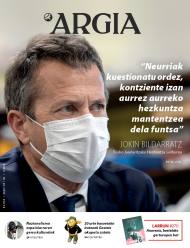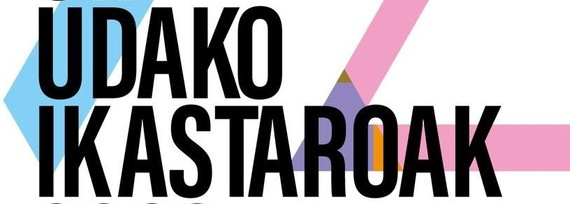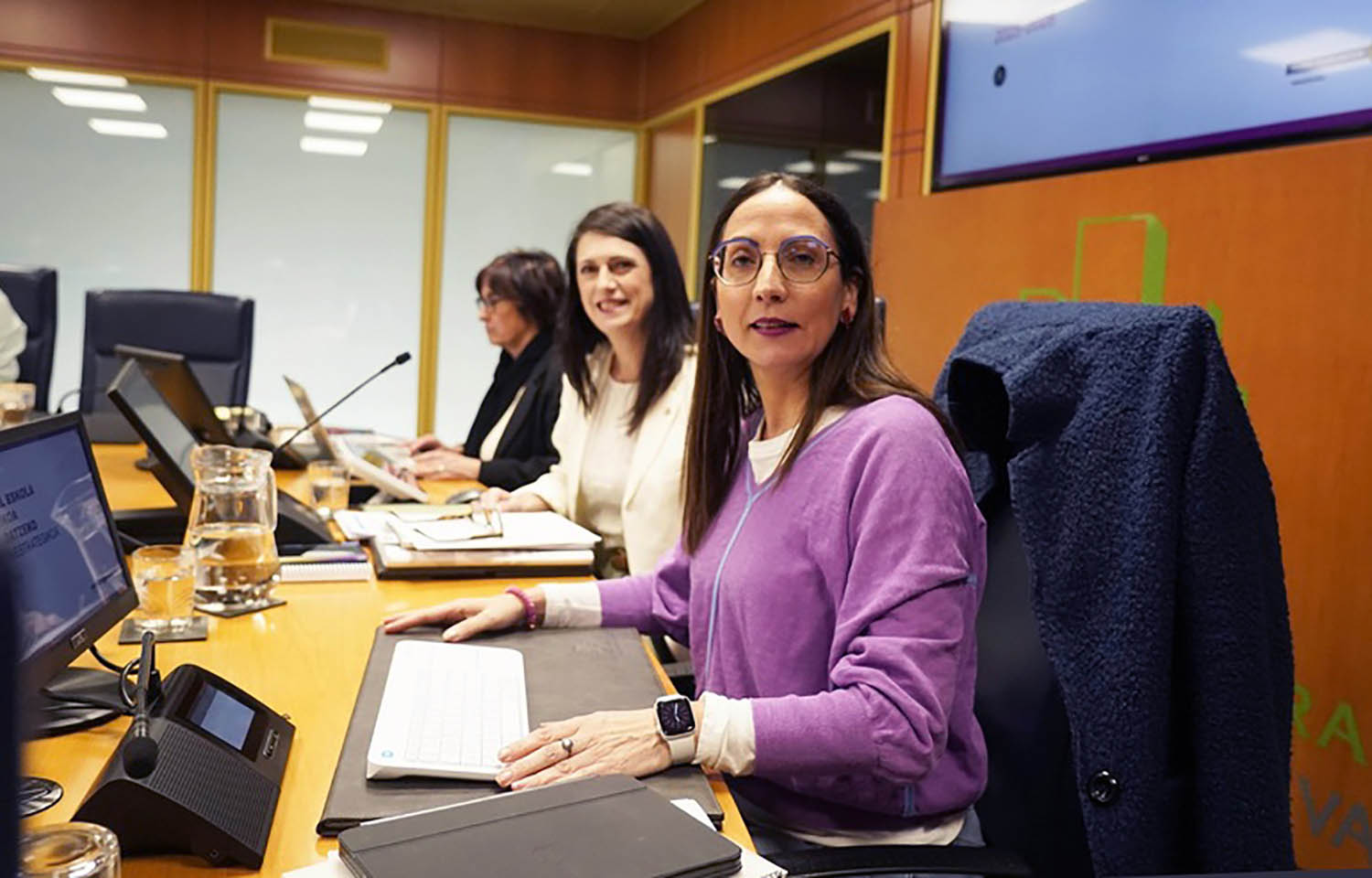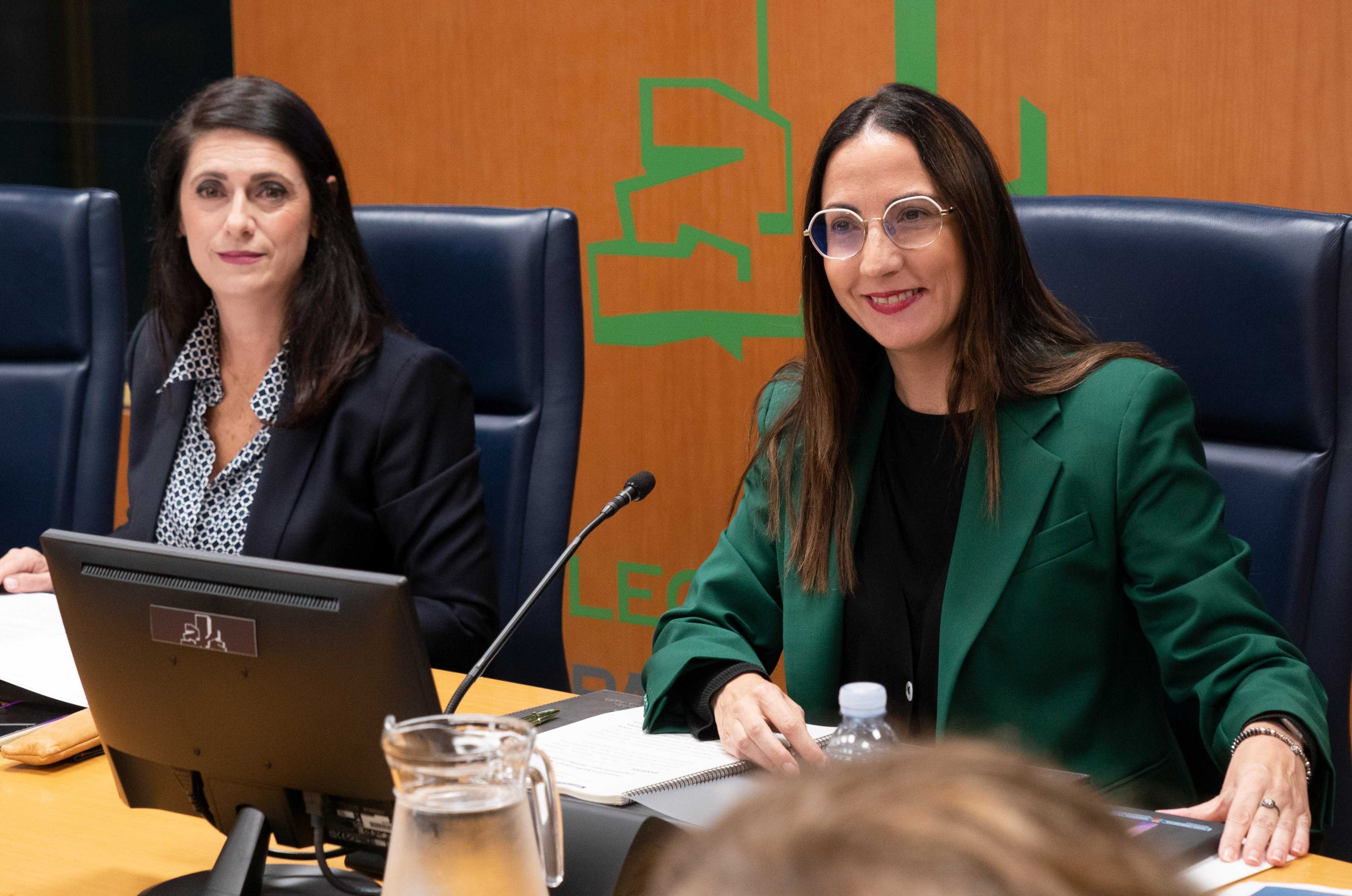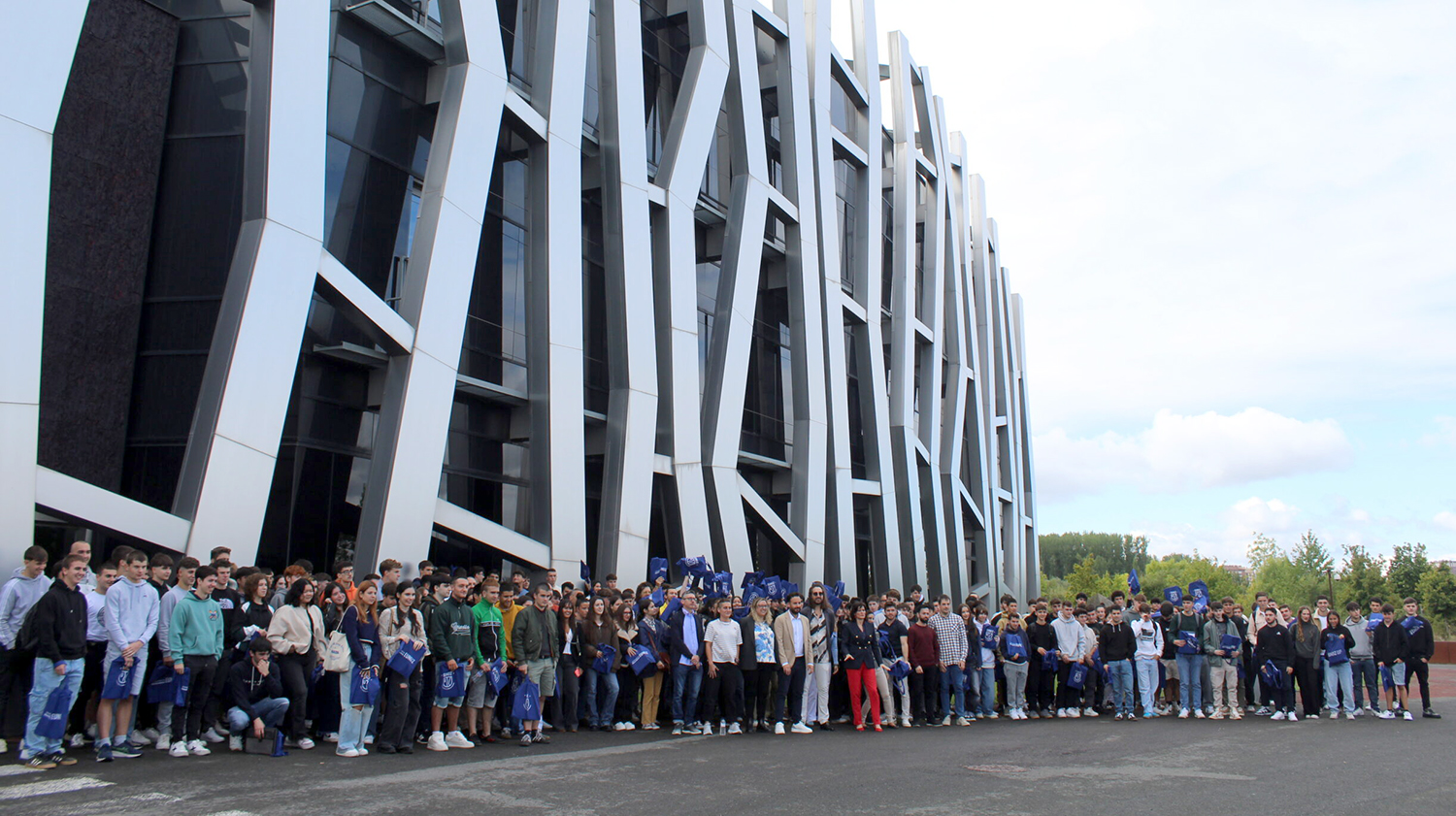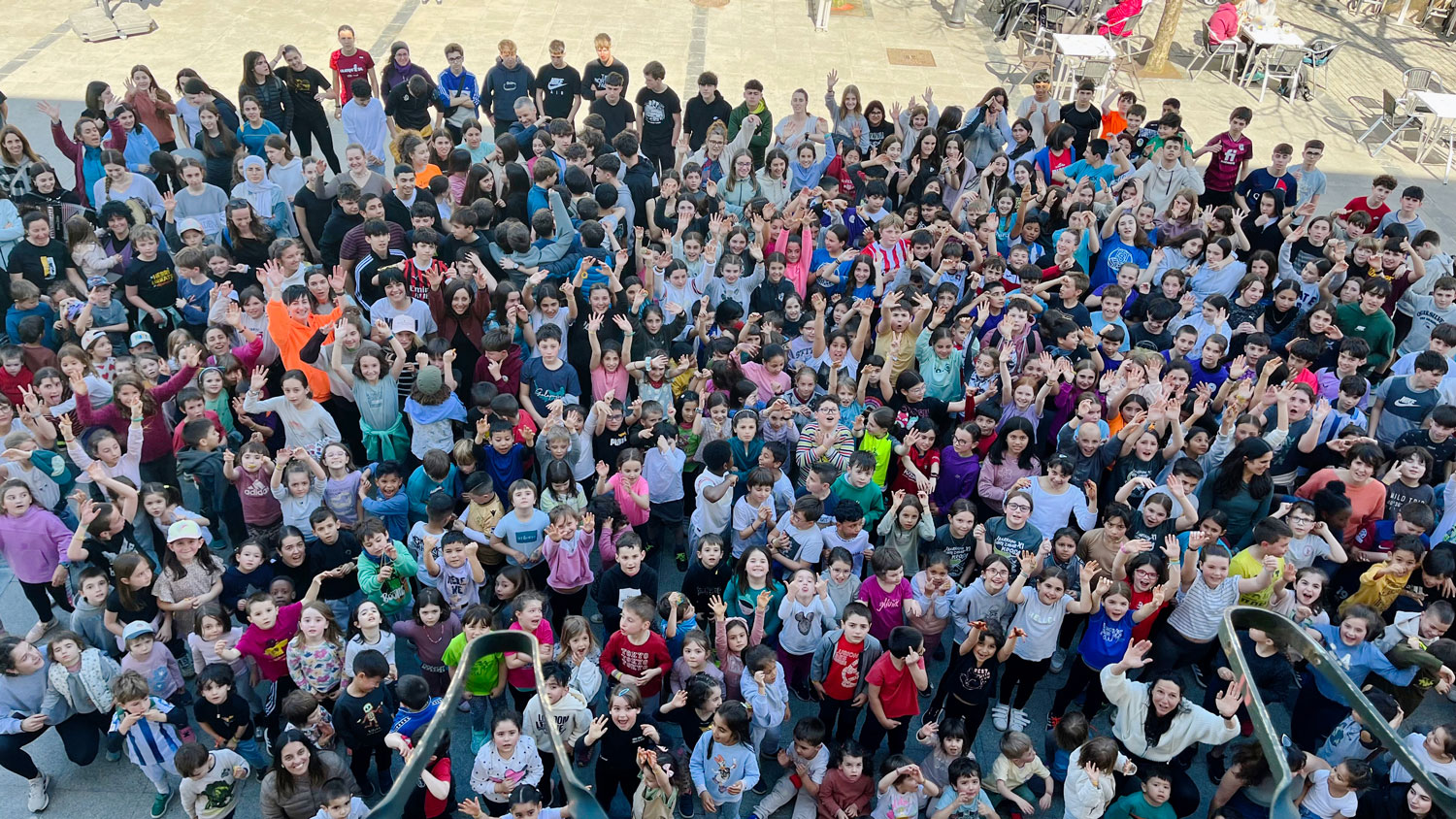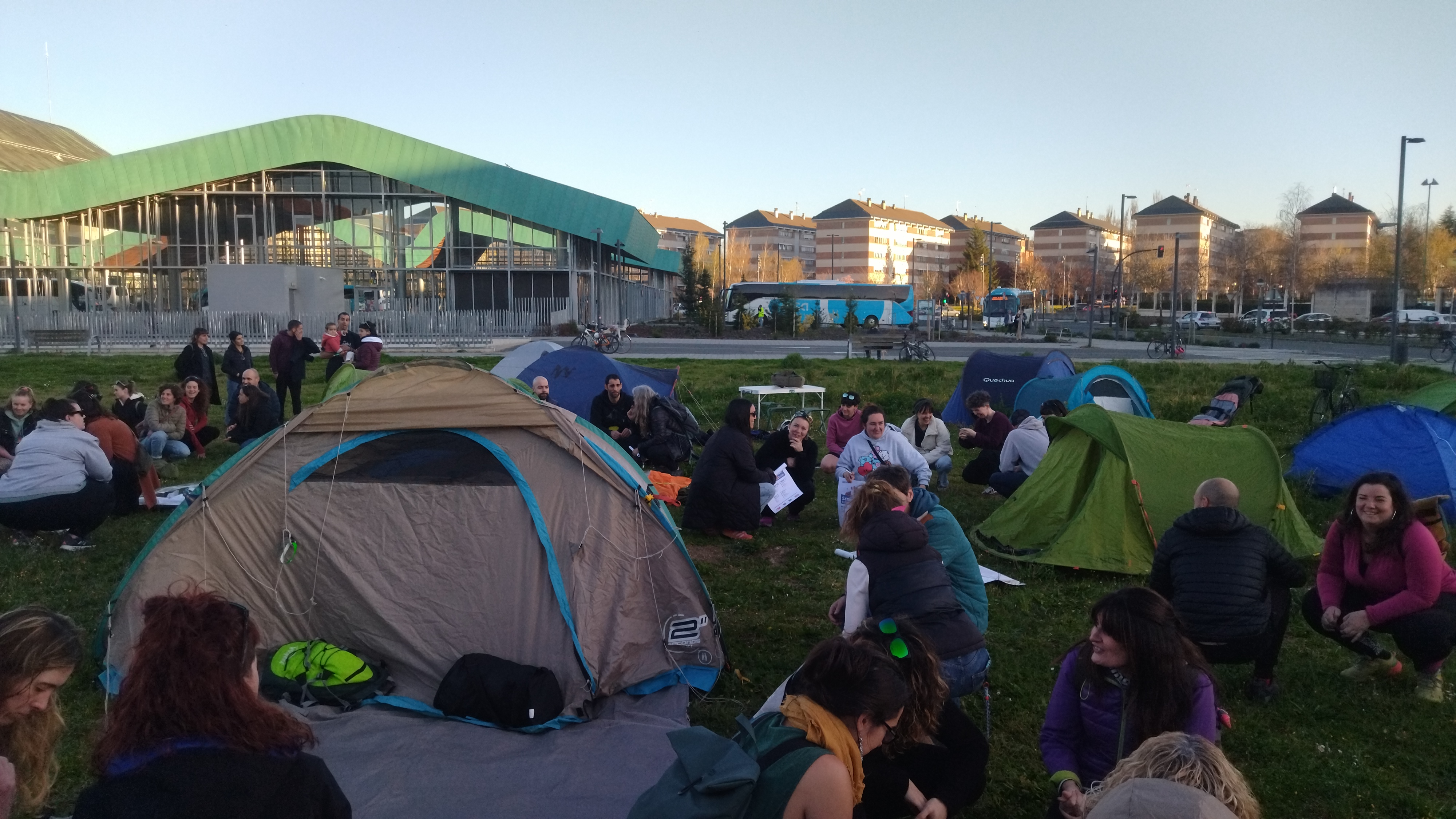"Children have not been targeted, they have sought to protect those with fewer defenses."
- We have asked the Basque Government Education Counselor about the effectiveness of pandemic educational protocols, the measures implemented for children and the workload of schools. We have also talked about the curriculum, about Euneiz and the competences, as well as about the educational convention being carried out in Parliament. Next autumn, the Government plans to introduce the new Education Act for the CAV, and the educational agreement seeking consensus between the parties is a preliminary step. Jokin Bildarratz presents the three axes of the agreement: the segregation of students, the Basque country and the theme of the public-private center.

The education staff complains about the saturation, with many bureaucratic procedures and jobs related to COVID-19. The Ikastolas Confederation has recently criticised the fact that they are taking on responsibilities that do not belong to them, ignoring pedagogy and other priorities. We live in a
very difficult situation, which we would never think of, and which has been given a good response from the educational world. To this end, resources have been made available. This course has more teachers than last year, both in the public network and in the concerted one, and I believe that the protocol is working well in general. Last December, at the gates of the holiday, we suffered a lot in the schools, we had to close some 460 rooms and we saw clearly that the return of the holiday was not going to be easy, but, although the situation is not simple, the classrooms are very closed, and that is very good news. Having said that, are they doing other non-pedagogical work in the centers? Surely yes, because in this special situation we are all doing work and making a special effort that normally do not adapt. As a teacher, in addition to pedagogy, we have to work a lot with each student; at this moment in which we are living, beyond pedagogy, the teachers will work in the emotional sphere... In any case, the Ikastolas Confederation did not personally convey what it says to me. We are working together and together we are going to take this forward; we have to thank all the members of the educational community for the enormous and excellent work they are doing.
You talk about the emotional. On the note that the pandemic is leaving, in June he said that with the Department of Health they were working on how to help manage the emotions of students and teachers. What does it consist of? We have
organised a number of courses in which nearly 800 teachers have participated. It is working very well and in March we will organize other days to give more tools to teachers, psychologists, advisors…
One of the sensations of the pandemic is that there are boys and girls often, even in educational protocols: having to bring the kiss in open spaces in schools, make bubbles, ban now school sports matches... Do you think the measures applied to students are proportional to other sectors and ages?
There has been a very conditioning element: the vaccine. The protocol we have had this course has been very similar to that of the previous course; at some point we have calmed down the development of the pandemic, but the difference has been in classrooms older or younger than 12 years, that is, whether or not they were integrated (for example, those older than 12 years could remove the kiss): From the age of 12, very few rooms have been closed until December (around 3%), which has shown us that the effect of the pandemic on the ages at which they were inserted was much smaller. In other words, it is not a question of the target being placed on children, but of how to protect young people who have fewer defenses. What happens outside the centers is another reality, but as an administration it is our responsibility to try to maintain safety and security within the centers. And instead of questioning the measures, we have to be aware of the difficult situation we are living in and that the fundamental thing is to maintain a basic element: classroom education. Remember the consequences of the student having to leave home for three months. The students themselves tell me that they are now much better than at home, and that means that action must be taken to reduce pollution. They do not like measures or standards, but they should be taken to ensure in-person use.
“In the centers that are doing other non-pedagogical work? Surely yes, in this special situation we are all doing tasks that are not normally adapted”
We have also seen how the pandemic has widened the gap between students. In the case of additional human resources, has special attention been paid to the reinforcements of students who have fallen further behind? When more personal resources have been
put in place, they have been specially set up to deal with the pandemic and to deal with the cracks and problems that have arisen. The teaching staff is a professional who, with or without a pandemic, will always attend to these students with problems.
It has been emphasized that the pandemic was a good time to address issues such as the reduction of ratios, the greater use of outer spaces, training in technology… Has the opportunity to change the usual educational paradigms been missed?
My diagnosis is quite the opposite. Pandemic has shown us many possibilities and in new technologies, for example, all students (public and concerted) have been provided with a computer, as well as material in Basque for their supply. Tremendous steps have been taken, which already existed, and the pandemic has shown us that we, all of us, are able to do more. We have a high quality education and we have the opportunity to improve further.
There is a lot of talk about competences (thinking, learning to learn...), but the feeling is that many times educational policies go in a different direction. One example: Faced with the challenge of philosophy and ethics posed by LOMLOE in Spain, philosophy professors have emphasized that in these years the government has not committed itself to philosophy, even if it is competent to do so. Does the discourse coincide with the educational policy? We
have been talking about competences for years, but it has always had a difficulty on the table: evaluation. How to evaluate competencies? At the moment we are in the development of the LOMLOE curriculum, which has already been defined by the Government of Spain, and we here are defining with the teachers and agents the curriculum of the coming years. We need to define what kind of people we want, what knowledge they need to acquire and how to educate them in coexistence. It is important to teach each student to think and give tools to master their own learning process, in which competencies will always be fundamental.
As for the LOMLOE and the competences, the Government has a 50% competence to put a hand in the curriculum that marks the Government of Spain. Do you exercise this competence quite a bit?
From top to bottom. With some 75 teachers and teachers from different networks, a powerful team has been formed, which meets very often, to define the curriculum that will have to be implemented in the next course. However, the real key is the professionals of the schools, who work day by day with the students and who are willing to build, so that the curriculum is dynamic.
“We want to put the percentages of vulnerable students to receive by all centers. Centers that receive public money should be concerned enough to respond to those vulnerabilities.”
Parliament has approved the extension of Euneiz University, in the green light of the government, but the need for Euneiz has been questioned by the previous and current rectors of the UPV. Does the CAPV need a publicly funded private university that teaches several subjects taught by the UPV/EHU itself?
Funded by public money… Where have you seen it?
As far as I am aware, both the Provincial Council of Álava and the Basque Government announced an investment…
The Basque Government? Look for it.
I do not have the data, my error.
[We have made progress in the conversation and the journalist has searched for the information later. In fact, it is the City Council of Vitoria-Gasteiz and the Provincial Council of Álava that announce the contribution of EUR 480,000 each for their financing. The government presented the Araba Sport Capital project to the Next Generation EU funds, channelling the proposal presented by the Council of Álava and requesting EUR 64 million for the project, of which EUR 12.5 million for Euneiz]
The opening of a new university requires a law of Parliament, which is what has been passed. Now the government has this project on top of the table to assess that the degrees they want to set in motion meet the requirements they have to meet, the doctorates, the master’s degrees, the professors’ profiles… From there, whether or not they will receive help, there is nothing of that, because the university has not yet started.
But how do you value it?
I don't know what that project is. In principle, a new university is OK, I have nothing to say there, because it's not the only private university. It's the difference that can exist with other private universities, whether it's a not-for-profit or not-for-profit university.
This seems to have been intended to make money.
They do not look like this in their statutes.
So there’s a difference… Of course,
that’s why I’ve told you.
.jpg)
Continuing education vs. divided education has come to the CAPV echoes of the debate in Navarre. What does the counselor say? Parliament
asked us for an analysis on this issue and we are doing so. In our opinion, schooling is fairer for the most vulnerable students than intensive ones, and it also seems more appropriate from a pedagogical point of view. We are, however, prepared to analyse and discuss it.
Before the drafting of the new Education Act, you want to agree an educational agreement in Parliament. Around the convention there are several issues on the table and one of them is the segregation of students. You said in El Correo that segregation is not a problem in the CAV educational system. Many agents and parties, as well as data, claim that this is one of the most serious problems we have.
What we say is that segregation is not generated at school. The student comes with a backpack and what the educational system has to do is work from a perspective of equality and equity. In our educational system, all vulnerabilities must be shared or worked among all centers. It is not possible to concentrate the most vulnerable students in a center. This center, with the majority of students in vulnerable situations, can be public in one village and arranged in another. How do we get vulnerable students to distribute as fairly as possible throughout the education system? We are working towards this, and all the decisions we take in the coming years will go in that direction.
What is the main way to cope with this segregation?There are many
types of segregations, but if we try to respond to socio-economic segregation, we want to put the percentages of vulnerable students that should receive all centers. All centres receiving public money should assume sufficient responsibility for responding to these vulnerabilities.
“The issue is not one language or another, but the acquisition of competence in the three languages”
Another central issue is language. The PNV has long argued that linguistic models must be overcome and that the immersion model (model D) is the only one that can guarantee the knowledge of the Basque language by the students, but that the freedom of choice of parents must be guaranteed. Will Models A and B be maintained?
Currently, the commitment to Basque models is clear among parents. Each school needs its own linguistic project, since it is not the same model D that can be done in Tolosa as in Barakaldo or Vitoria, 60% of students in the center with Basque mother tongue and 100% in the center with Spanish native language. We should carry out a linguistic project that suits the socio-linguistic situation of each of them, and to that end we should give it the appropriate resources to each centre and reality. Teacher training is also essential in this area.
Linguistic projects adapted to the socio-linguistic context… but within model D?Most centers have opted for model D, but, as I said, the D models of Tolosa and Barakaldo are not going to be
the same, they will respond differently to their socio-linguistic reality and, therefore, each center has a leading role in this issue. I believe that we must escape from the debate in the Basque Country, because in recent years there has been a broad consensus and because parents also see the most appropriate path for the children in relation to the Basque country. The Law of the Basque Country itself is an important key: the law says that once secondary education is completed, all students must be able to express themselves in Basque and Spanish. Because linguistic projects in schools must be understood within linguistic diversity, because young people also learn English or French. The issue is not one language or another, but the acquisition of competence in all three languages.
The public network requires the administration to give priority to the public network. Does the Department of Education prefer one network over another? In the
public system, public schools are the centre of education, but concerted centres also play an important role (they account for 50% of students). We need to strengthen the two networks, because they all form our educational project and in that sense it is important that the two networks be strong. In fact, we should take advantage of the new law to overcome the dynamics of networks, because it does not matter whether it is a center of one network or another, what matters is what project each center has, what roadmap it builds for the future, if it guarantees an education offered on equal terms and free of charge.
“Whether the centres publish or not, I do not believe that this debate is in society. Also, why publish a center, if you have a strong educational project and you don’t need to publish it?”
In this need to overcome the networks, two formulas are proposed: the publication of the concerted ones or the guarantee of 100% public funding to all with the fulfilment of certain rights and obligaciones.La the publication or not of the educational centers, I do not believe that this debate
is currently in society. Furthermore, why publish an educational center if it has, for example, a sound educational project, a social one, and it has no will or need to publish it? That is why I said that we have to be above the concept of network, that the objective is to offer a quality educational project, that responds to the problems that exist among all the centres and under similar conditions.
It advocates the full autonomy of the centres with a good evaluation. How is this assessment refined? Each
center owns itself and it will be he who decides what the money is going to spend, where it has its priorities… and we will evaluate it as before, both public and concerted, to ensure that the money that is given to them is used on the basis of what is necessary and the reasons that have been given. And 99 percent is fine, but for everyone, it's more effective if we evaluate and receive the evaluation of others.
It also mentions the increase in the competences of municipalities in the field of education. What role do you think they should play?
We already share some competences: caring for the social cohesion of a people, for example, is a municipal competence, but we can help in this. We are talking about social cohesion and we have just talked about the issue of segregation: the more balanced that cohesion is, the better the environment of the people, and that is why we promote the creation of municipal commissions in the municipality and the participation of all the schools in the municipality, so that we can agree among all and all decisions related to education.
Also registration?
Also. Perhaps in each village you can put a registration office… In relation to segregation we have already said before that we have to balance the spaces of vulnerability between all the centers and that the city also has to participate in this distribution and planning.
It claims the empowerment of the centers. How are management centers empowered, endowing them with resources? Beyond
the provision of resources, empowerment is strength, autonomy and leadership, and to do so requires a team that owns and believes in itself. It is essential to have powerful management teams, and we are working on a decree that includes their recognition, with new functions and new economic prizes. Parents also play an important role. Each center responds to a reality and a specific ecosystem, and it has agents around it, it has several administrations, but the real protagonists are the centers themselves. Under us we have 1,222 centers; it is impossible to give strength to everyone from a centralist perspective, each center must take strength from autonomy.
With a view to the convention, you are hearing in Parliament 100 hearings of the agents of the educational community. However, various voices have asked to participate in the structuring of the convention itself, not to be a mere consensus among the political actors.
Since September I have met with 511 people (AMPAS, centre directors, unions, heads of all employers…) and all, in addition to explaining the terms of the convention, I have asked them to make contributions. I have dozens of very useful contributions. Furthermore, as there was never before, there are 100 hearings underway in Parliament. The parliamentary parties are representatives of society, they have all the legitimacy to legislate, and yet, before we start drafting the text, Parliament has talked with all the actors to gather the thoughts of all. What is more, even after making the articulated text, we will be back with all the actors to give their opinion. It is clear what the axes are: segregation, Euskera and the topic of public-private centers, and our task will be to complete the text by bringing together the highest number of sensitivities on these and other issues.
The possibility of an agreement in Parliament was a long way off with former advisor Cristina Uriarte. Now, on the contrary, it seems that the agreement is made from the outside, that there is great harmony between some parties. What has happened from Uriarte to Bildarratz?
There has been a pandemic. The pandemic has taught us the role that education can play and we have seen with political parties and social partners an atmosphere and a very positive attitude, because the pandemic has shown us that together we are much more. I have a very good relationship with all the political parties and some have already told me that they are not going to participate in the agreement, but that they understand that there has to be agreement. I am optimistic and I believe that we are going to reach agreements, because in the hearings of the actors we are also hearing similar things, around the thematic axes. The key will be to shape it.
.jpg)
Public education teachers have the need and the right to update and improve the work agreement that has not been renewed in fifteen years. For this, we should be immersed in a real negotiation, but the reality is deplorable. In a negotiation, the agreement of all parties must be... [+]
Garai kuriosoak bizi ditugu eta bizi gaituzte, zinez. Hezkuntza krisian dela dioten garaiak dira eta, gutxien-gutxienean, aliritzira, ba aizue, 2.361 urte ditu gaurgero boladatxoak.
Ez zen ba debalde joan Aristoteles bere maisu maite Platonen akademiatik lizeo bat muntatzeko... [+]
Lehengai anitzekin papera egitea dute urteroko erronka Tolosako Lanbide Heziketako Paper Eskolako ikasleek: platano azalekin, orburuekin, lastoarekin, iratzearekin nahiz bakero zaharrekin egin dituzte probak azken urteotan. Aurtengoan, pilota eskoletan kiloka pilatzen den... [+]









